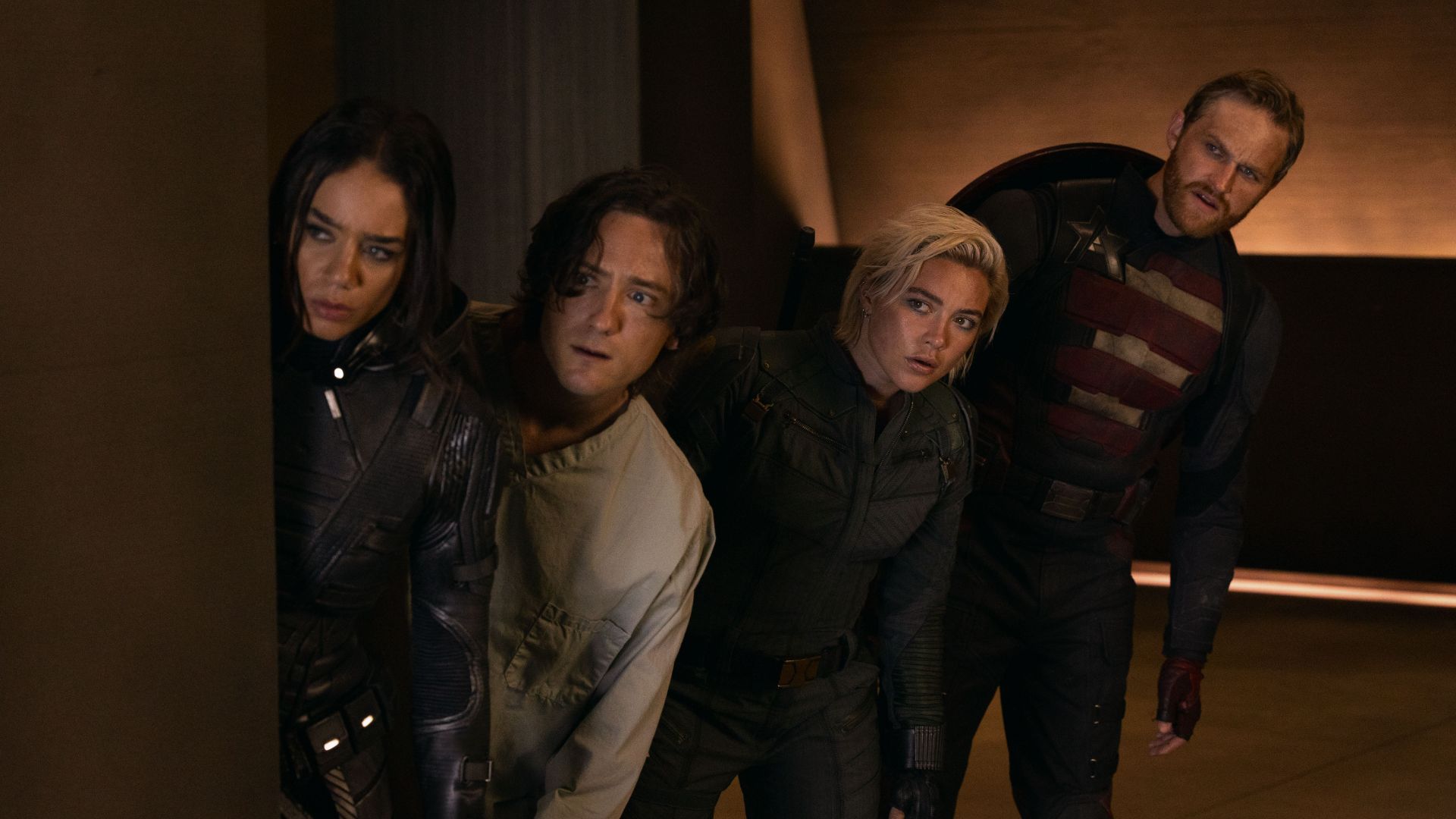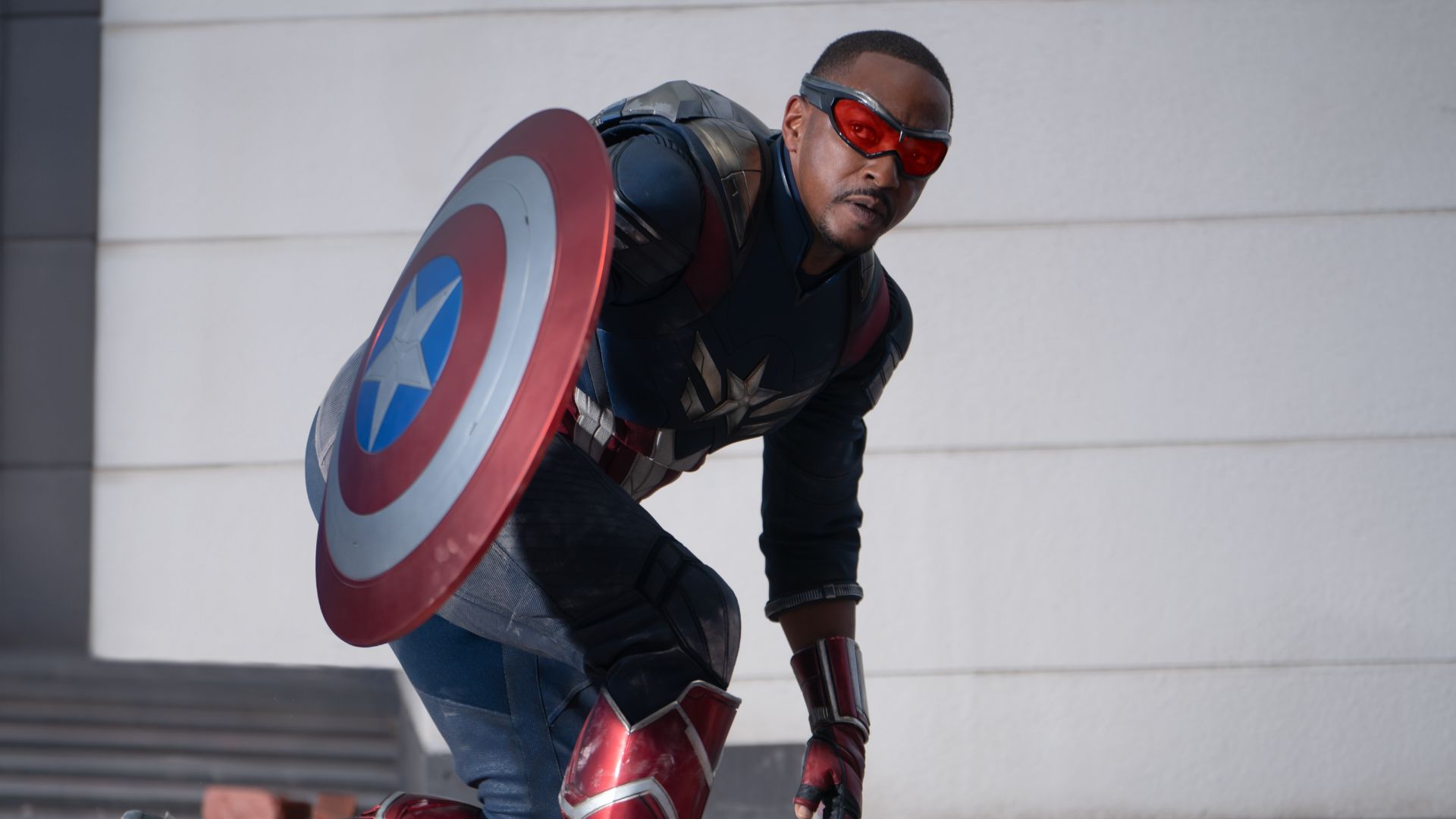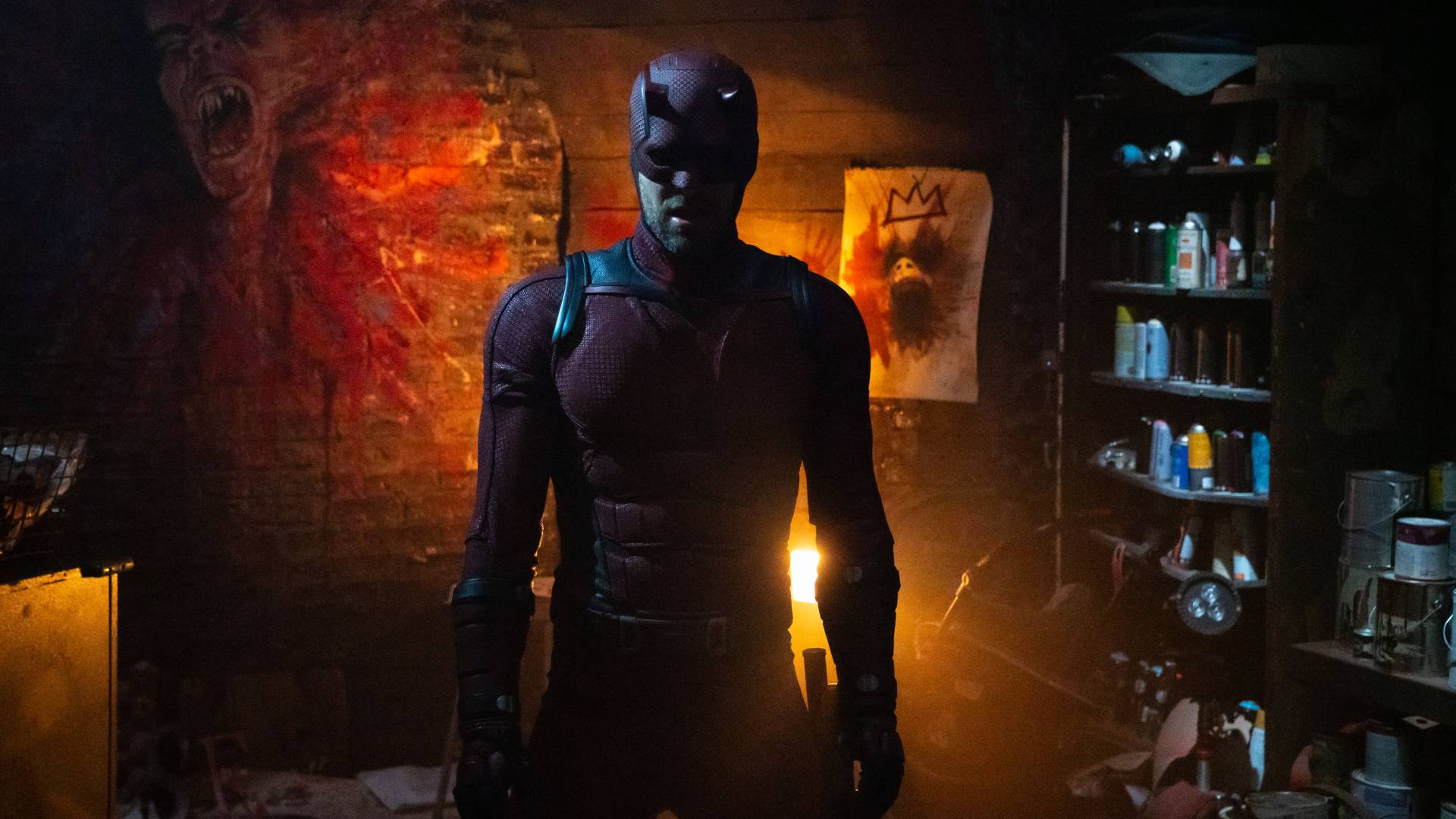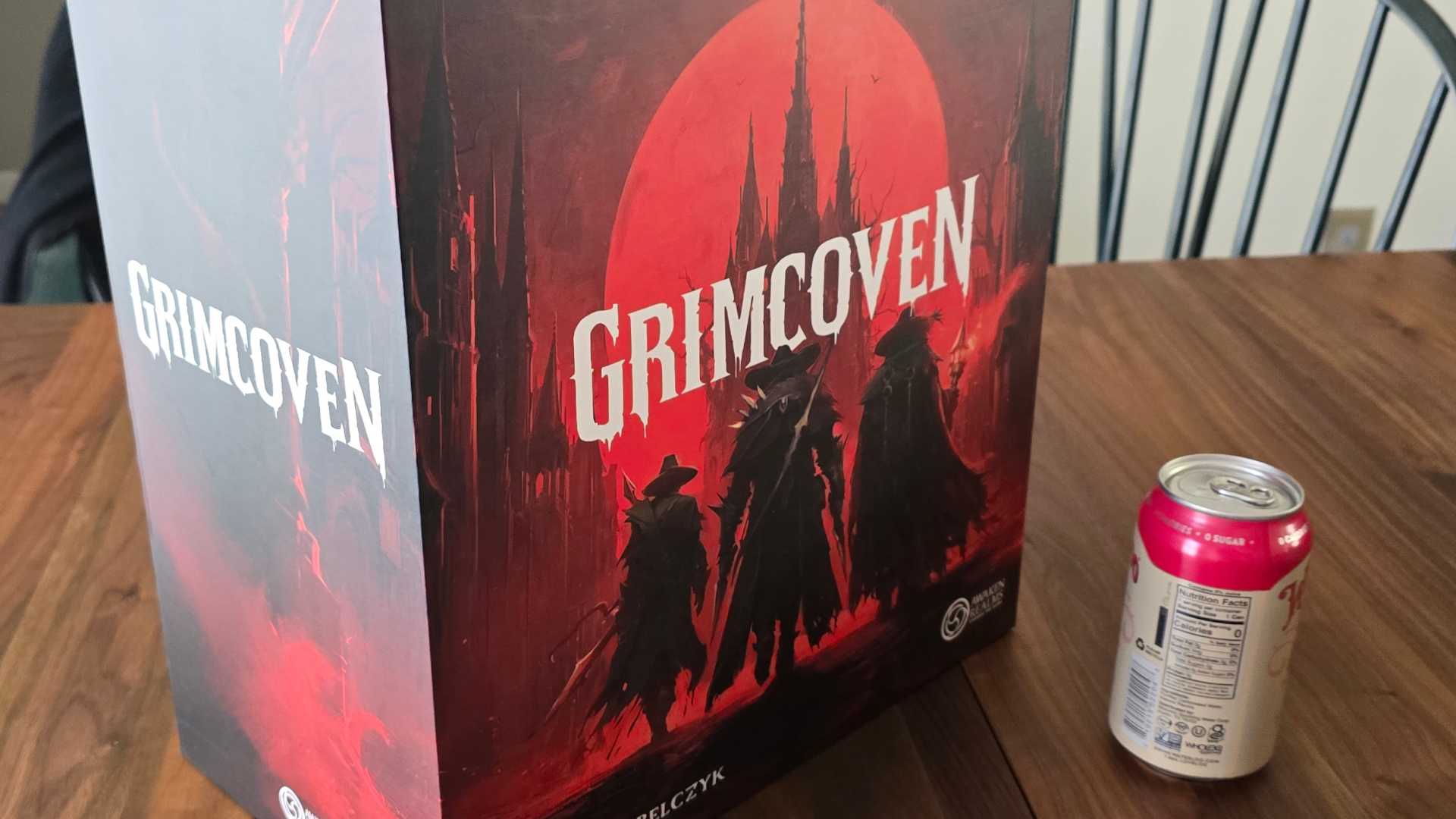Marvel Phase 5 closes a weird, ramshackle chapter in MCU history – and shows what Marvel needs to get right in Phase 6
Opinion | Phase 5 may have been a disjointed saga, but our writer thinks Marvel is learning all the right lessons as we prepare to enter Phase 6

Weekly digests, tales from the communities you love, and more
You are now subscribed
Your newsletter sign-up was successful
Want to add more newsletters?

Every Friday
GamesRadar+
Your weekly update on everything you could ever want to know about the games you already love, games we know you're going to love in the near future, and tales from the communities that surround them.

Every Thursday
GTA 6 O'clock
Our special GTA 6 newsletter, with breaking news, insider info, and rumor analysis from the award-winning GTA 6 O'clock experts.

Every Friday
Knowledge
From the creators of Edge: A weekly videogame industry newsletter with analysis from expert writers, guidance from professionals, and insight into what's on the horizon.

Every Thursday
The Setup
Hardware nerds unite, sign up to our free tech newsletter for a weekly digest of the hottest new tech, the latest gadgets on the test bench, and much more.

Every Wednesday
Switch 2 Spotlight
Sign up to our new Switch 2 newsletter, where we bring you the latest talking points on Nintendo's new console each week, bring you up to date on the news, and recommend what games to play.

Every Saturday
The Watchlist
Subscribe for a weekly digest of the movie and TV news that matters, direct to your inbox. From first-look trailers, interviews, reviews and explainers, we've got you covered.

Once a month
SFX
Get sneak previews, exclusive competitions and details of special events each month!
Marvel Phase 5 was never meant to end this way. Literally. The original plan was for Thunderbolts* to conclude this chapter of the Marvel Cinematic Universe, but thanks to some delays, new Disney Plus series Ironheart has become this era’s capper. And what a weird, ramshackle era it has been, one that has massively changed the direction of Kevin Feige’s superhero saga, just not in the way he first intended.
When Marvel Phase 5 was announced at San Diego Comic-Con in 2022, the MCU's new era was an extremely exciting proposition. Post-Endgame and with the pandemic ravaging its productions, Marvel’s output was floundering and directionless, and fans were growing impatient. Stepping onto the Hall H stage, Feige appeased the naysayers by giving a name to The Multiverse Saga, revealing everything coming in Phase 5, and announcing both a Fantastic Four reboot and two Avengers movies, The Kang Dynasty and Secret Wars.
The San Diego audience – including myself, sitting near the front, dazzled by the ongoing display – was thrilled, and when Black Panther: Wakanda Forever reached cinemas later that year, there was a sense that Marvel was back on track. Then Ant-Man and the Wasp: Quantummania happened.
Quantumania was meant to lay the foundations for a new Thanos-level enemy, Kang, who would eventually take on the newly formed Avengers. That plan quickly went awry. Quantumania was both a box office and critical flop, while Kang was perceived to have been too easily beaten by the Ant-Family – so what chance did he stand against the Avengers? Not exactly a great launching pad for a multiversal, universe-destroying adversary.
Do your homework

Guardians of the Galaxy Vol. 3 came next – a movie that always felt like an outlier, acting as a conclusion to James Gunn’s trilogy, rather than being an MCU building block – followed by The Marvels. On paper, the Captain Marvel sequel made sense as a big-budget project (after all, the first installment made over a billion dollars globally), yet now, in retrospect, you can see why it is the MCU’s lowest-grossing movie. Bringing together disparate characters from various TV shows (Ms. Marvel from her Disney Plus series and Monica Rambeau from WandaVision), The Marvels was always going to be a difficult sell, requiring audiences to do too much homework to understand the plot.
You could argue that this shouldn’t have been too much of an issue (after all, Captain America: Civil War brought together loads of Avengers in a non-Avengers movie and was wildly successful), but I would point out a few things. First, the Disney Plus shows have not had the cultural impact of any Marvel movie, and second, expecting someone to watch a six-hour show, rather than a two-hour movie, is simply more off-putting. Third, while Marvel’s filmmakers have tried to make it so that you don’t need to watch the shows before seeing the movies, simply knowing these characters have previous on-screen history makes audiences feel like they won’t be getting the full picture, and no-one wants to spend money on a cinema ticket and only understand half of what’s going on.
This would prove a problem for the well-received Thunderbolts*, too. Again, you can understand why Feige believed a movie about Valentina Allegra de Fontaine collecting superheroes – Nick Fury style – would be box office gold. Yet, that doesn’t take into account just how low-stakes these characters feel, as a mixture of Black Widow sidekicks, Ant-Man and the Wasp leftovers, and a Captain America knock-off. Not even a name-change to The New Avengers could save it.
Meanwhile, Captain America: Brave New World, perhaps the most classically Marvel-feeling title of Phase 5, did better-than-Thunderbolts* numbers despite bad reviews, rumors of some heavy reshoots, and, once more, relying on some knowledge of a Disney Plus series, The Falcon and the Winter Soldier.
And then there was Deadpool and Wolverine, something of a finalé to Fox’s X-Men universe. Like Guardians, Deadpool and Wolverine seemed like an outlier, but now, considering the upcoming Avengers: Doomsday will bring back most of the X-Men, it has become arguably the most important installment of Phase 5.
In fact, the way the next Avengers movie has been completely retooled from being about Kang to Doom tells you everything you need to know about how radically the reception to Phase 5 has impacted the MCU. Where Kang was meant to be The Multiverse Saga’s biggest threat, he’s now presumably died somewhere on the way back to his home planet. Where the Fox universe was seemingly meant to end, it now continues into the next Avengers. And while the Thunderbolts* are positioned as key new characters, it’s hard to see them having a major impact on the MCU considering how few people got off their butts to see them in cinemas. However, the biggest change of all to the overarching MCU is undoubtedly how the TV shows and movies will interact. This idea is pretty much dead.
The limitations of limited series

Phase 5's small-screen output started out with Secret Invasion – essentially a film split into six parts that was also meant to tee up Armor Wars with its (highly divisive) War Machine twist. It was poorly received, and the next show that was due to follow the same format, Ironheart, was heavily delayed. Meanwhile, Echo was released all at once, and Daredevil: Born Again, which was originally going to ignore the Netflix series’ canon and be an original show, was completely reworked, with a new showrunner brought aboard.
During all this, the studio rebranded its small-screen efforts as Marvel Television, separate to Marvel Studios. When I spoke to Brad Winderbaum, the head of streaming at Marvel, late last year, he explained: "As time went on, the shared universe started to feel like an obligation to people, and that cost us a sense of discovery, especially on the television side."
Born Again is now set to be a multi-season series following a classic TV structure (i.e. not just a movie split into six parts). The same (sort of) goes for Agatha: All Along, which acted as a second season to WandaVision and is set to be followed up with VisionQuest in the future. Meanwhile, Phase 5’s biggest small-screen success, Loki, was a second season, showing just how much people appreciate TV shows that continue their own story over multiple seasons.
"The limited series format is really cool and exciting and has a big scale to it, but it is different from a television show," Winderbaum told me. "It's similar to a long-form movie. A real show has more of a call-and-response element with the audience where, if you're lucky enough to have multiple seasons, you are listening to what storylines are striking people in particular ways. It is our goal to make shows that have an annual cadence, that feel like longer form character studies, like truly great television shows do."
Heading into Marvel Phase 6, the MCU's in a very different place compared to when Feige stood up on that Hall H stage three years ago. There seems to be an understanding that the studio can’t just tell an interconnected story about B-list characters and expect an audience to show up. It needs to earn that audience. Next up, we have Fantastic Four, which brings Marvel’s First Family into the fold, no homework required. And then it’s onto Doomsday, and sure, there are going to be a colossal number of characters from across the franchise involved, but that’s expected for an Avengers movie. Plus, we’ll finally find out who the “real” Avengers are. It’s taken long enough.
So farewell, Phase 5, you messy beast. You tried a lot of things, and most of them didn’t work. But as Nick Fury once said, "You hope for the best and make do with what you get," and Marvel’s making the most of what it got right.
Marvel Phase 6 kicks off with The Fantastic Four: First Steps, which hits theaters on July 25. For more on the MCU, check out our guide to all the upcoming Marvel movies and shows still to come in 2025.

Jack Shepherd is the former Senior Entertainment Editor of GamesRadar. Jack used to work at The Independent as a general culture writer before specializing in TV and film for the likes of GR+, Total Film, SFX, and others. You can now find Jack working as a freelance journalist and editor.
You must confirm your public display name before commenting
Please logout and then login again, you will then be prompted to enter your display name.


